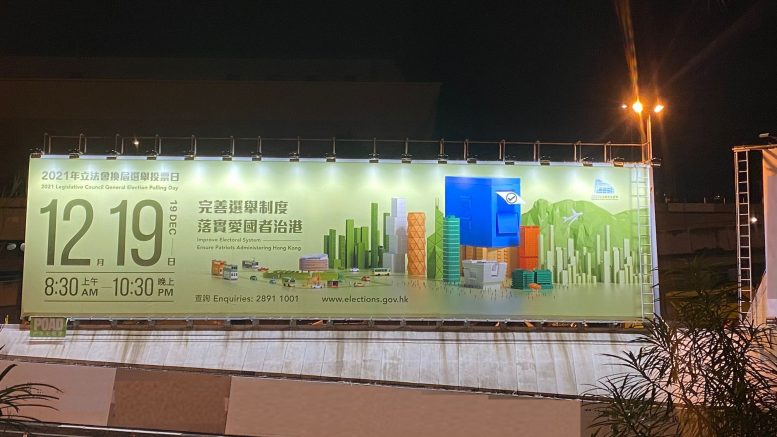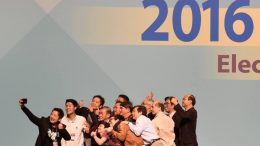By Chris Yeung —
Officially dubbed as “improving electoral system”, the Beijing-crafted Legislative Council election game will be effectively put to a vote on December 19 when voters are confronted with the question: to vote, or not to vote. And if the answer is yes, what to vote?
With the deferred Legco poll less than a fortnight to go, the election featuring a record high of registered voters, or 4.47 million, is facing the likelihood of setting an unpalatable record, namely a historic low turnout.
An online survey conducted by the Hong Kong Public Opinion Research Institute (Pori) between Monday and Thursday last week found that 40 percent of 6,400 respondents said they “most likely” or “absolutely” would not be casting ballots on election day.
A separate Pori survey found that 86 percent of respondents who identified themselves as supporters of the city’s pro-democracy camp felt there was no candidate running in the directly elected geographical constituencies that was worthy of their vote.
The 1996 Legco election, the last before the 1997 handover, saw the record low turnout rate, or 35.8 percent, since popular vote was introduced. The highest turnout was recorded in 2016 with 58.2 percent.
The guesstimate of the 2021 Legco election turnout rate by political pundits ranged between 25 percent and 30 percent.
Adding to the unease of Beijing and the patriots and the Carrie Lam administration is the scenario of a marked increased number of blank votes and invalid votes, which could be interpreted as the 2021-version protest vote.
Rolled out after the enactment of the Hong Kong national security law, Beijing has held out high hopes over the “improving electoral system” exercise in putting an end to the turmoil caused by the 2019 social movement, thus ushering a new era of stability, followed by prosperity.
To Beijing, the formula is simple. Kick out the democrats who oppose China and cause troubles to Hong Kong. The new game will be “patriots only.” Under the new electoral system, a panel led by Chief Secretary John Lee will vet all candidates to confirm their eligibility.
That said, the central and Hong Kong authorities and pro-establishment camp have repeatedly pledged that the next legislature will not be composed of members “in the same colour”, referring to political affiliation, or to be more exact, pro-establishment.
Their assurances do not hold the water.
Whether their original intention is or is not “patriots only” is now insignificant.
The excessive political curbs on the right to stand for election built into the electoral system have caused immense difficulties to the democrats in seeking nominations. Importantly, the continued merciless crackdown against the democrats with moderates included has dampened their enthusiasm, if any, in keeping a voice, albeit a weak one, in the next legislature.
Judging from opinion polls, their de facto boycott of the upcoming election as a show of defiance of the new electoral system is largely in line with the aspirations of the mainstream pro-democracy voters.
Six months after a bill on the new electoral system became law and implemented, the feeling of resistance and opposition among a considerable segment of the populace against it shows no signs of easing. Many are not in the mood of forgetting, not to mention forgiving, at least for the upcoming poll.
Aside from the system itself, the prevalence of an air of suppression and control in the socio-political climate since the implementation of the national security law has prolonged the feeling of despair, distrust and anger in the society.
The recent swift arrest of a handful of people who face charges of inciting people to cast blank votes is clearly a calculated attempt to “scare the monkeys by killing the chicken.”
The Government’s hardball tactics may be proven effective in deterring people from openly calling on people to cast blank votes in the lead-up to election day. But whether it will help change the mind of those who may do so is another matter.
Head of the Independent Commission Against Corruption Simon Peh said at the weekend it is not illegal for people to cast blank or invalid ballots, but he was coy when asked whether a pollster has violated election laws by including the options of casting blank votes in an election survey.
The right to vote is an integral part of the civic rights of citizens stipulated in the Basic Law.
The reason for many of them to exercise their right to vote is often simple. They do so when they feel their votes matter and can make a difference.
When they feel adamant that is not the case, they should be pardoned for shunning the poll in one way or another, going with their will. Doing so, as the ICAC chief has rightly indicated, indeed breaches no law.
ends



Be the first to comment on "To vote or not to vote, is that the question?"